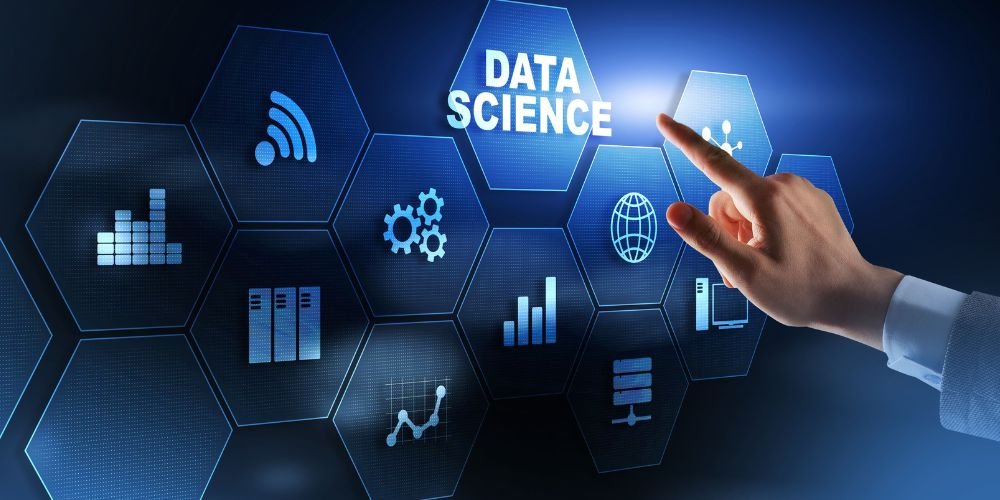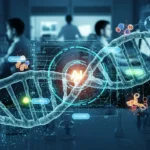Data science has emerged as a transformative field that harnesses the power of data to extract valuable insights, drive decision-making, and fuel innovation across various industries. This comprehensive exploration delves into the intricacies of data science, unraveling its fundamental principles, key methodologies, recent innovations, notable applications, and the transformative impact it has on reshaping the business, technology, and research landscapes.
Understanding Data Science
Data science is an interdisciplinary field that incorporates domain expertise, programming skills, and statistical knowledge to extract meaningful insights from extensive and complex datasets. It uses a range of techniques and methodologies, including information mining, machine learning, and predictive analytics, to uncover patterns, trends, and correlations hidden within data.
Key Components of Data Science
The core components of data science contribute to its functionality and effectiveness in various applications:
- Data Collection involves gathering, acquiring, and accessing data from diverse sources, including databases, APIs, sensors, and web scraping techniques.
- Data Preprocessing: Cleaning, transforming, and preparing raw data for analysis by addressing missing values, outliers, and inconsistencies.
- Exploratory Data Analysis (EDA) involves exploring and visualizing data to understand its structure, distribution, and relationships using descriptive statistics and data visualization techniques.
Methodologies in Data Science
Data science employs a range of methodologies and techniques to extract insights and create predictions from data:
Machine Learning
Machine learning algorithms learn from data to make predictions or decisions without being explicitly programmed, enabling tasks such as classification, regression, clustering, and anomaly detection.
Deep Learning
Deep learning is a subset of machine learning that uses neural networks with multiple layers to extract features and learn complex patterns from data. This enables applications such as image recognition, natural language processing, and autonomous driving.
Recent Innovations in Data Science
Recent innovations have propelled data science to new heights, enabling the development of more advanced algorithms, tools, and platforms. Notable advancements include the adoption of deep learning techniques, the integration of AI-driven analytics, and the emergence of automated machine learning (AutoML) solutions.
Deep Learning for Natural Language Processing (NLP)
Deep learning models, such as recurrent neural networks (RNNs) and transformers, have revolutionized natural language processing tasks, enabling applications like language translation, sentiment analysis, and chatbots to achieve unprecedented accuracy and fluency.
AI-Driven Analytics Platforms
AI-driven analytics platforms utilize machine learning and advanced analytics techniques to automate data analysis, generate actionable insights, and provide recommendations. They empower organizations to make data-driven decisions at scale and in real-time.
Notable Applications of Data Science
Data science has diverse applications across various industries and domains, powering numerous use cases and applications, including personalized recommendation systems, predictive maintenance, fraud detection, and healthcare analytics.
Business Intelligence and Analytics
Business intelligence and analytics empower organizations to analyze customer behavior, market trends, and operational performance, thereby gaining competitive insights, optimizing processes, and driving informed strategic decision-making.
Healthcare and Life Sciences
In healthcare and life sciences, it facilitates medical imaging analysis, genomic sequencing, drug discovery, and personalized medicine, revolutionizing diagnosis, treatment, and patient care with data-driven insights and predictive analytics.
Challenges in Data Science
Despite significant advancements, it faces challenges that impact its widespread adoption and effectiveness in real-world applications. Addressing these challenges is crucial for ensuring the reliability, scalability, and ethical use of its techniques and technologies.
Data Quality and Privacy
Ensuring the quality, integrity, and privacy of data used in data science applications poses challenges due to data bias, data leakage, and compliance with regulations such as GDPR and HIPAA.
Interpretability and Explainability
Interpreting and explaining the decisions made by complex machine learning models pose significant challenges for data scientists, particularly in high-stakes applications such as healthcare and finance, where transparency and accountability are crucial.
Future Trends in Data Science
The trajectory of data science indicates exciting trends that will further redefine its capabilities and applications in the digital transformation era. These trends promise to enhance automation, scalability, and interpretability, ushering in a new era of data-driven innovation and discovery.
Augmented Analytics
Augmented analytics combines machine learning and natural language processing techniques to automate data preparation, analysis, and insight generation, enabling business users to explore data and make decisions with minimal technical expertise.
Responsible AI and Ethical Data Science
Responsible AI and ethical practices prioritize fairness, transparency, and accountability in data-driven decision-making, ensuring that AI systems are unbiased, interpretable, and aligned with moral principles and societal values.
Conclusion
Data science is a transformative field that empowers organizations to extract actionable insights, drive innovation, and solve complex problems using the power of data. From business intelligence and healthcare analytics to autonomous vehicles and smart cities, the impact of data science extends across diverse industries and domains, reshaping how we work, live, and interact with the world around us. Despite challenges, ongoing innovations in deep learning, AI-driven analytics, and responsible AI hold promise for a future where data science continues to push the boundaries of what is possible, unlocking new opportunities for discovery, optimization, and societal benefits in the digital age.





